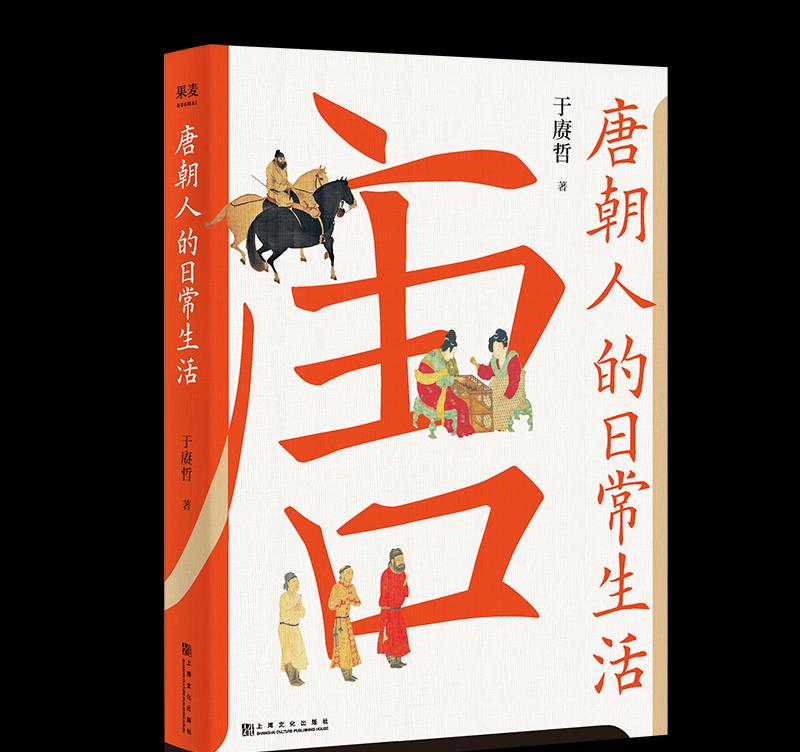Recently, Shanghai Culture Publishing House Guomai Culture published a new work by Professor Yu Gengzhe of the School of History and Culture of Shaanxi Normal University, "The Daily Life of the Tang Dynasty", which provides readers with a panoramic picture of the daily life of the Sui and Tang dynasties.
The book records the details of the life of the Tang Dynasty in many ways. Through the analysis of the historical materials, the daily life of the people of the Tang Dynasty is restored, including the themes of Datang food, Datang language, Datang culture, Datang family life and so on. The book depicts in detail the life of all classes in the Tang Dynasty, from the court nobles to the scholars, farmers, industrialists and merchants, and is a practical "guide to the life of the Tang Dynasty".

This book is Yu Gengzhe's second popular science reading on the history of daily life in the Sui and Tang dynasties after "The Daily Life of the Sui and Tang Dynasties". In his preface, he says: "Why should we care about these trivial routines? In the past, the Chinese historiography system with the Twenty-Four Histories as the main trunk all took political history, institutional history, economic history, etc. as the right thing to do, which is also an "alternative embodiment" of China's official-based thinking mode for thousands of years, and the fans and opponents of official-based thinking are all narrating history within the same framework, that is, the history of politics, the history of heroes, and the history of emperors and generals. We do not deny the importance of political history, but we must see that it is the grassroots people who provide impetus to the whole society, who are obscure in the historical data, and speaking for them is one of the responsibilities of modern historians. What they think, customs and habits, and production and operation are the factors that affect the development of history in the medium and long term. "Heaven listens to its own people, and heaven sees itself as its own people", those influential figures in political history are actually nothing more than conforming, using or rebelling against this kind of public opinion, and conforming, using or rebelling determines the direction of political history. What are the desires, demands, and behaviors of the people separated from their daily lives? ”
In the Tang poems we are familiar with, there are many masterpieces about wine, and Li Bai's "Young Journey" has "Wuling Young Jinshi East, Silver Saddle White Horse Spring Wind." Fallen flowers swim everywhere and laugh into the orchid liquor store." Du Fu's "Eight Immortals in Drinking" also wrote: "Li Bai wrote a hundred poems, and the restaurant in Chang'an City slept." Tianzi did not come to the ship, claiming that his subject was a wine immortal. In the fourth chapter, "Eating in the Tang Dynasty", Yu Gengzhe discussed an important question with the reader, what kind of wine did Li Bai drink?
And Yu Gengzhe believes that to look at the various achievements in the history of the development of traditional Chinese technology, we must adhere to the principle of "combining points, lines and surfaces", understand the heights that traditional technology has reached (the so-called "points"), take into account the characteristics of the "empirical science" of traditional Chinese technology and the inheritance mode of private transmission (the so-called "line"), and also consider whether this technology has been carried forward and transformed into a public technology, thus having a major impact on the development of technology and social welfare (the so-called "surface"). Not all technological achievements have experienced the process of "point-line-surface", and sometimes "point" is always "point", which has not had a profound impact on the development of traditional Chinese technology and the whole society, which is why we often lament the incomparable perfection of an invention of the ancients, and then lament why it has not been passed down to this day. The same is true of the problem of distilled liquor, otherwise there would be no erudition such as Li Shizhen who also believes that liquor is foreign.
Gansu Yulin Cave No. 3 Western Xia Mural (1)
Gansu Yulin Cave No. 3 Western Xia Mural (2)
What "The Daily Life of the Tang Dynasty" wants to show is countless scattered pearls, which together can form a beautiful necklace that reflects the style of the Sui and Tang dynasties.
Nandu reporter Zhu Rongting intern Tan Wanying